List of fruits rich in fiber
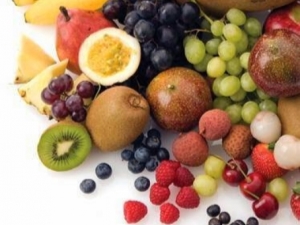
Fiber is an indispensable component of food that contributes to the normal functioning of the intestines. Everyone should understand the importance of these dietary fibers and include fiber-rich foods in their daily diet. These include certain fruits, which not only contribute to the removal of toxic substances from the body, but also help to reduce weight.
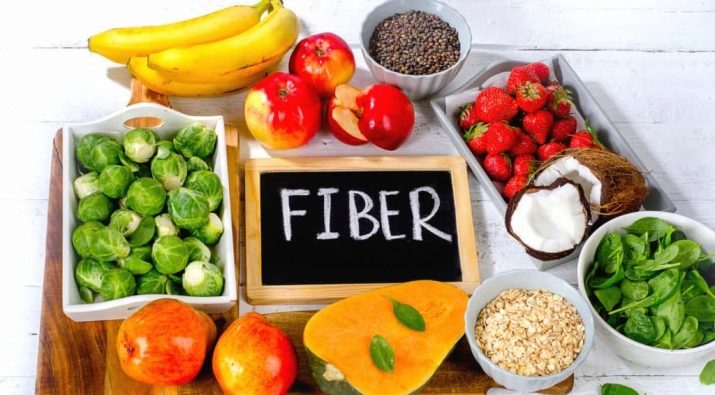
The benefits and harms of fiber
Fiber is a component of food that breaks down to form glucose, which is necessary to create the basis of tissue cells. The human body does not produce these dietary fibers on its own, therefore it is forced to obtain them through food. In this case, food should belong to a special group of carbohydrates that the stomach is not able to digest. Cellulose can have coarse or soft fibers. Coarse food components consist mainly of cellulose, while soft food components consist of resin, pectins and cellulose. In this way, soft fiber is able to completely dissolve in gastric juice.

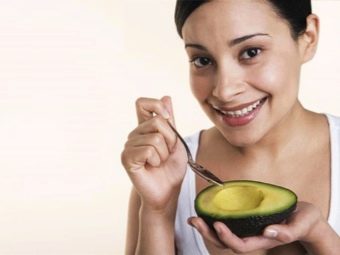
The human body is not able to fully assimilate dietary fiber, their coarse structure allows products to stay in the stomach for a long time, giving it a feeling of fullness. Thanks to them, a person eats less, which allows a beneficial effect on his weight. Fiber can help relieve constipation. It helps to release the body from carcinogens, which in large quantities can cause intoxication.
Coarse fibers, being in the gastrointestinal tract, perform many useful functions.They allow you to stabilize the level of glucose in the blood, remove bad cholesterol and adjust the weight of a person. From an energy point of view, such food does not benefit the body, but it allows you to stabilize the work of all organs.

Nutritionists have found that 35-45 g of fiber is enough per day for an adult, and only 10 g for children. As the child grows, the need for coarse dietary fiber increases by 1 g per year, so a 5-year-old child needs to consume at least 15 g. dieters should eat 35 g of fiber per day.
Coarse fibers are essential for the natural regulation of glucose levels in the body. But include such foods in your diet gradually to give the body time to get used to such food. Abruptly switching to proper nutrition can contribute to stomach problems.
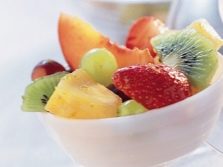

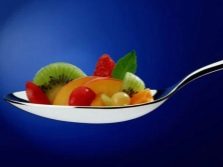
Heat treatment increases the structural appearance of the fibers, so their useful properties are reduced. To fully saturate the body, you need to eat fresh fruits. Pregnant women should consume them in large quantities to prevent constipation. But the amount of fruits rich in fiber should not exceed 25% of all food consumed, otherwise bloating can be provoked.
From a dietary point of view, fiber has great benefits, as it significantly affects excess weight. This is because these dietary fibers do not carry energy value, which means they do not add a kilogram. Their presence plays an important role in the diet of a person who is losing weight, as they cleanse the body and normalize weight.


Most diets are based on the consumption of foods rich in fiber.Insoluble coarse fibers are found in many fruits, which, when ingested, absorb stagnant fluid and rid a person of toxins and toxins. In addition to nutritional benefits, fiber is essential to prevent constipation. Due to its absorbent properties, it thins and enlarges the stool, making it easier to excrete.
Speaking of the harm that excess fiber intake can bring, one can single out dehydration, indigestion, and even intestinal volvulus. To prevent this from happening, it is necessary to control the intake of coarse fibers and remember to drink water.

List of fruits
The presence of fiber in food is important for the full functioning of the whole organism. With its deficiency, diseases of the gastrointestinal tract and kidneys can develop, so you need to add foods rich in dietary fiber to your diet. It is worth familiarizing yourself with the list of fruits containing a large amount of fiber.
- Avocado. This fruit is rich in vitamins C, E, K, B6 and B9. 100 g of fruit contains about 6.5 g of dietary fiber, depending on the variety and color of the peel. Large light green fruits are more saturated with fiber than small dark green fruits. In addition, avocados are useful in saturated fats, which can lower blood cholesterol levels.
- Asian pear. There are 3.5 g of fiber per 100 g of product. These fruits are rich in vitamins K and C, and also contain potassium and omega-6 fatty acids, which allows them to have a beneficial effect on brain activity.
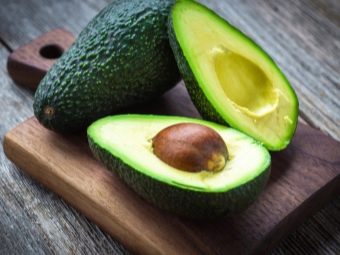
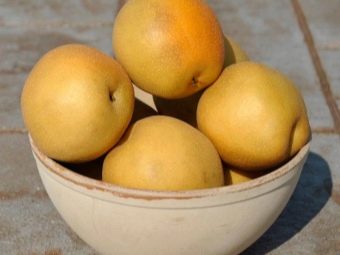
- Coconut has a low glycemic index and contains 9 g of fiber per 100 g of fruit. It is rich in manganese, selenium and vitamin B9.With the help of coconut, you can reduce the risk of cardiovascular diseases and remove bad cholesterol from the body.
- figs fresh contains 3 g of dietary fiber, and dried - almost 10 g. In addition, the fruit is useful due to potassium, manganese, copper, pantothenic acid and vitamin B6. Figs are able to strengthen bones and blood vessels, as well as cleanse the kidneys, stomach and intestines of toxins and toxins.
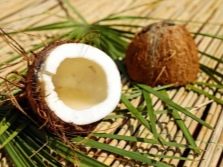
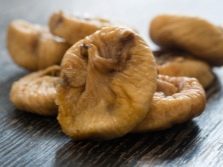
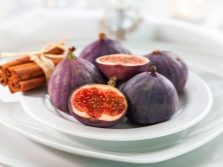
- Apple. There are 2.5 g of coarse fibers per 100 g of product. These fruits allow you to rid the body of toxic substances, and also help prevent the formation of colon cancer. Apples can dull the feeling of hunger for a long time, which is especially important when following a diet.
- Date fruit. A glass of fruit contains about 46% fiber. They help to normalize the level of glucose and cholesterol in the blood, and also stabilize the work of the gastrointestinal tract. Dates can be eaten raw or as a dessert.
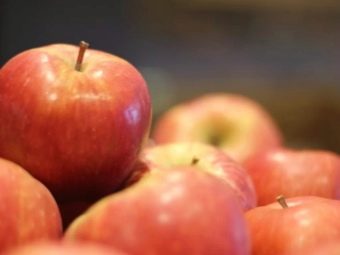
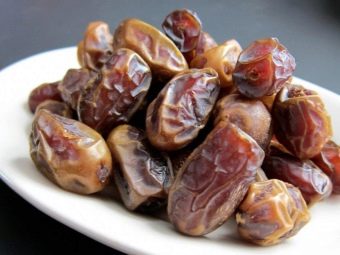
- Kiwi. 100 g contains 3 g of dietary fiber, 9 g of sugars and 0.3 g of polyunsaturated fats. The fruit allows you to strengthen the immune system, stimulate the production of collagen, and also improve digestion.
- Banana. This fruit is rich in vitamins B6 and C. The average fruit contains about 3 g of fiber, which can improve the condition of the colon and suppress hunger. Unripe bananas contain resistant starch and pectin, which lower blood glucose levels and have a positive effect on heart health.
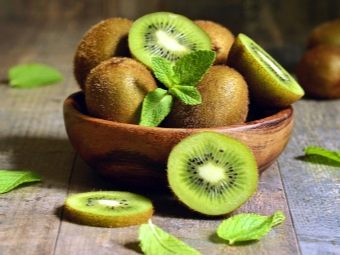
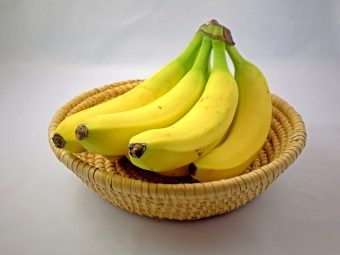
- Orange contains 2.3 g of fiber per 100 g of fruit. With it, you can improve the functioning of the gastrointestinal tract and intestinal microflora. Oranges help to increase immunity and eliminate cholesterol plaques.
- Persimmon. One fruit contains about 6 g of dietary fiber.It suppresses the feeling of hunger due to the pectin contained in it, which controls blood sugar levels.
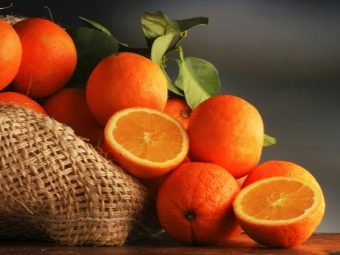
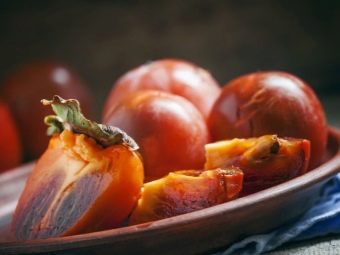
Calorie to fiber ratio
Despite the high fiber content, some fruits should not be consumed during the diet. Often they have an overestimated glycemic index and contain a lot of sugars, which negatively affects weight. Therefore, before compiling a diet menu, it is important to study the ratio of BJU, calorie content and the amount of dietary fiber.
fiber rich fruits calorie table
fruit name | Glycemic index | Calories per 100 g | Fiber, g |
Apple | 30 | 44 | 2,5 |
Pear | 34 | 42 | 3,5 |
Orange | 35 | 47 | 2,3 |
Kiwi | 50 | 61 | 3 |
Persimmon | 56 | 55 | 6 |
Banana | 60 | 91 | 3 |
figs | 35 | 257 | 3 |
Since fruits contain carbohydrates in addition to dietary fiber, their consumption should be carefully controlled. When compiling a diet, it is important to take into account the amount of carbohydrates in all foods, since an excessive amount of them will lead not only to weight gain, but also to digestive problems.
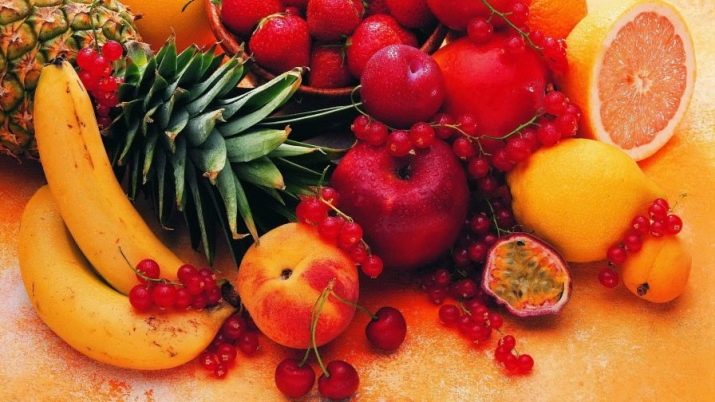
Subtleties of use
Lack of fiber can lead to general intoxication of the body. In addition, diseases of the gastrointestinal tract, kidney failure, hemorrhoids, constipation and even diabetes can develop.
Eating heat-treated coarse fiber will not bring benefits, so you need to eat them fresh.
Fiber is an indispensable component of food, but in some cases it is worth reducing its intake, for example, with individual intolerance or chronic diarrhea. To benefit from dietary fiber, you need to consult a doctor and make the right menu.


In some cases, a high fiber intake can lead to negative consequences, so not all people can add fruit.For example, in the presence of an ulcer or gastritis, their use should be minimized. To reduce weight while following a fruit diet, you need to make a menu in such a way that the content of dietary fiber in it does not exceed 26 g. At the same time, it is advisable to eat fruits during snacks, replacing them with harmful foods.
It is best to eat fiber-rich fruits half an hour before meals, which promotes a feeling of satiety, which will reduce the consumption of main dishes.
Coarse dietary fiber is important for the normal functioning of the intestines, so they should be included in the daily diet of any person. The bacteria found in such products contribute to the absorption of vitamins and trace elements, and also remove toxic substances from the body.

Video about the incredible benefits of plant fiber and its properties, see below.


















Very helpful article, thanks a lot. :)